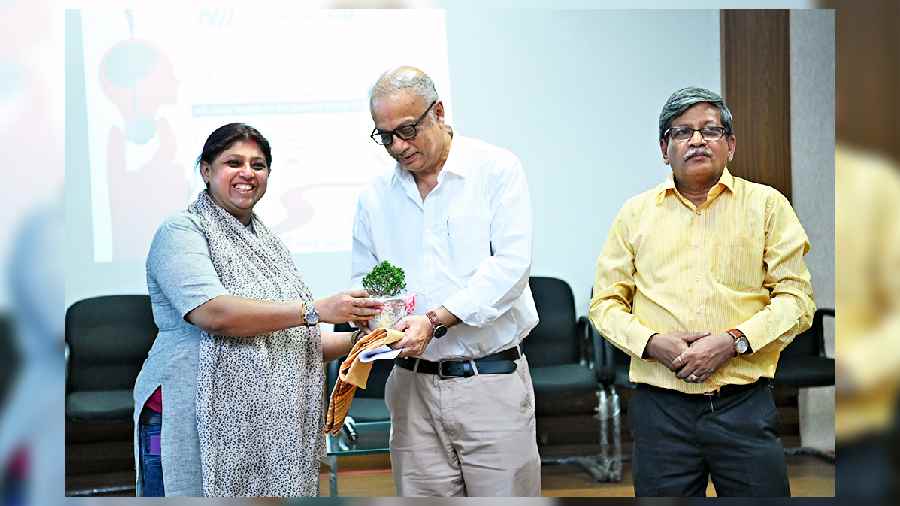The University Challenge Debate, in association with The Telegraph, at the Narula Institute of Technology on March 4 saw youngsters from nine universities engage in a battle of the minds. JIS University, CDC (Calcutta Debating Circle) and NIT (Narula Institute of Technology) hosted the debate with four participating universities from outside Kolkata, namely Lady Shri Ram College for Women from Delhi, Hindu College from Delhi, O.P. Jindal Global University from Delhi and Dhaka University. The Calcutta participants included students representing Jadavpur University, Presidency University, St. Xavier’s College, Loreto College and IIM Calcutta. The debate comprised two rounds — preliminary round and the final round. The preliminary round had 10 participating teams, with two speakers in each team. The final round had two teams, with six members in each team. After an intense final round, group two won by the judges’ markings, whereas group one was declared as the audience’s choice. Snapshots:
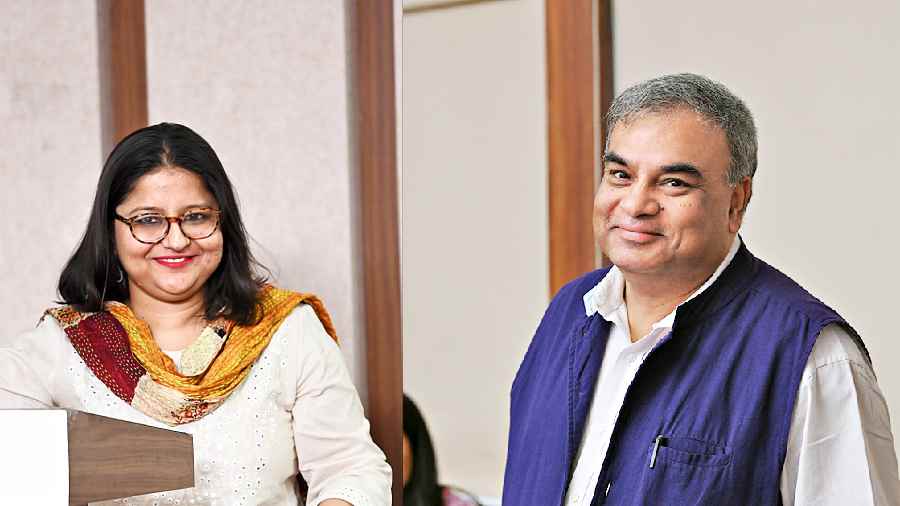
(l-r) Ipsita Barat, Raju Raman
Ipsita Barat, head of the Department of Mass Communication and Videography at St. Xavier’s College, Kolkata, was one of the judges.“I think CDC is doing a great job as debating excites the mental faculties and is eminent for students. I was invited here as a jury member, and it was fantastic to witness the students from all around the globe coming together and presenting arguments regarding such pertaining issues today. These issues are often discussed between us adults, but here the participants did a great job at this point of their career bringing such ideologies,” said Ipsita Barat.
“It was a challenge getting teams to Calcutta just ahead of a public holiday but we are very glad to experience such a scintillating debate. The first round was about education and the final round was about the crisis our society faces today. I’m very glad that the students thought outside the box. They also presented a wide range of arguments, many of which caught us by surprise,” said Pradeep Gooptu, trustee of the Calcutta Debating Circle.
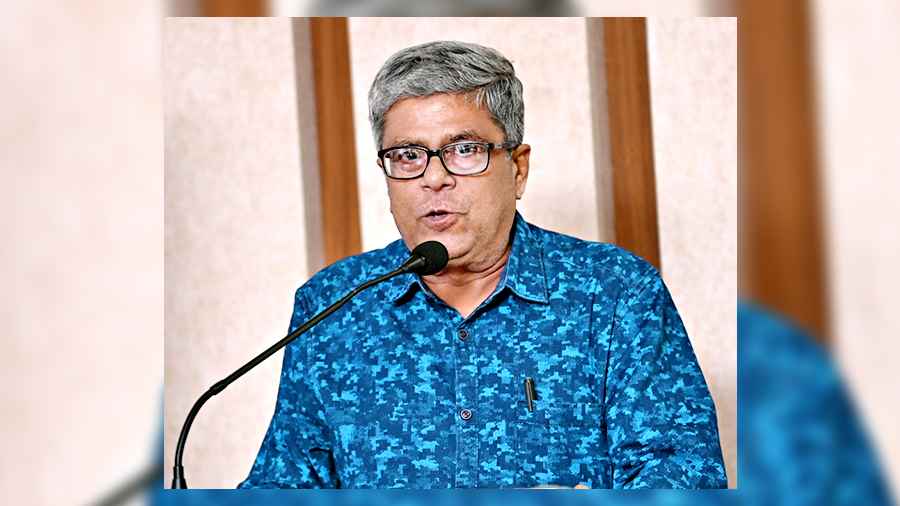
“I think the entire day was very well spent because both the debate sessions in the morning and in the final round opened up so many avenues of thought. When you come for a debate, it doesn’t really matter what you are personally convinced about, you are there to represent a side and that is a skill of debating and this came out in ample quantity today. I think everyone has won today in one way or the other,” said Raju Raman, an executive member of the Calcutta Debating Circle, and one of the judges.
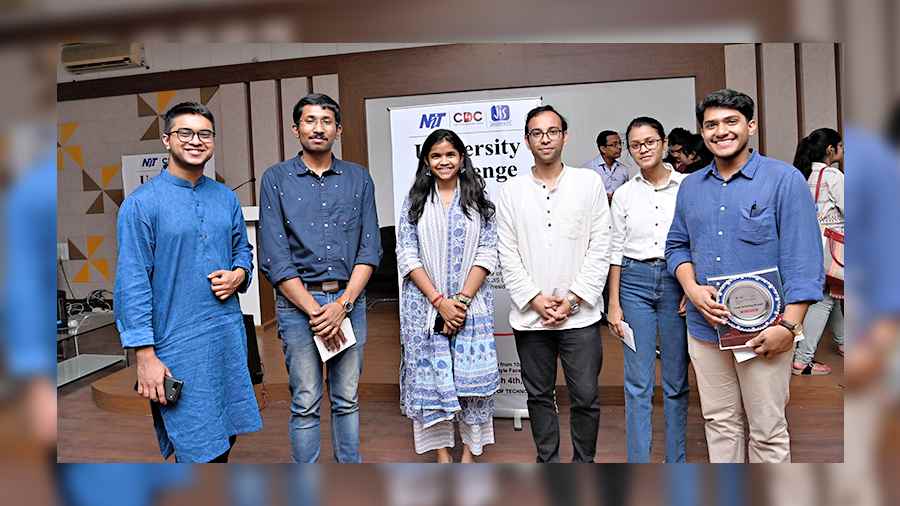
The opposition team was the winner of the final round. (L-R) Ahmad Tousif Jami from Independent University, Bangladesh (IUB), Soumyajit Paul from St. Xavier’s College (Autonomous), Kolkata, Anushka Pandey from Hindu College, Abhilash Maji from IIM Calcutta, Roshni Veronika Mallick from Jadavpur University and Jishnu Datta from Calcutta University, Department of Law. “The debating conventions at the event were rather unique and much different than the mainstream Bangladesh debating circuit. We surely enjoyed the new experience. The hospitality of the organisers was amazing. We would love to come back again,” said Ahmad Tousif Jami, who was also the runner-up for the Best Speaker in the final round. Soumyajit won the best speaker award from the opposition team in the final round and the best speaker in the preliminary round.
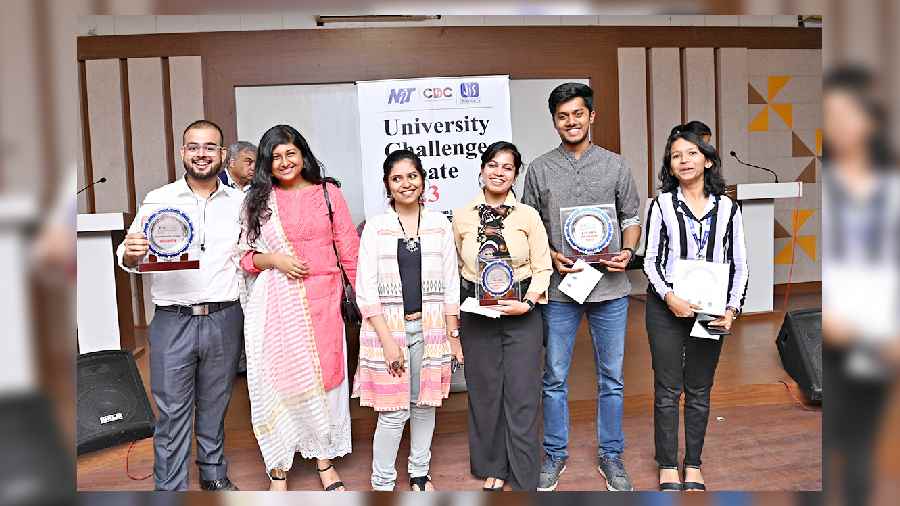
The proposition team won by audience choice. (L-R) Harsha Roy from Calcutta University, Department of Law, Anupa Paulchaudhuri from Hindu College, Srija Dutta from Presidency University, Vibha Agarwal from the JIS Group, Sairaj Goudar from Jindal Global Law School, Delhi, and Neha Sen from Loreto College. Vibha was the runner-up for the best speaker category from the proposition team in the final round. Sairaj was also the winner of the Best Speaker award in the final round from the proposition team and Neha was the Best Speaker in the preliminary round. “That winning feeling is always surreal, especially winning after having spoken in a debate this close. The fact that like in the Oxford Union, the point was to convince the audience and make them vote for your side, was the real challenge, and I was so happy that I was able to play a part in getting an overwhelming number of the audience to vote for the proposition. In India, there’s no better feeling than a landslide democratic victory,” said Sairaj Goudar.
